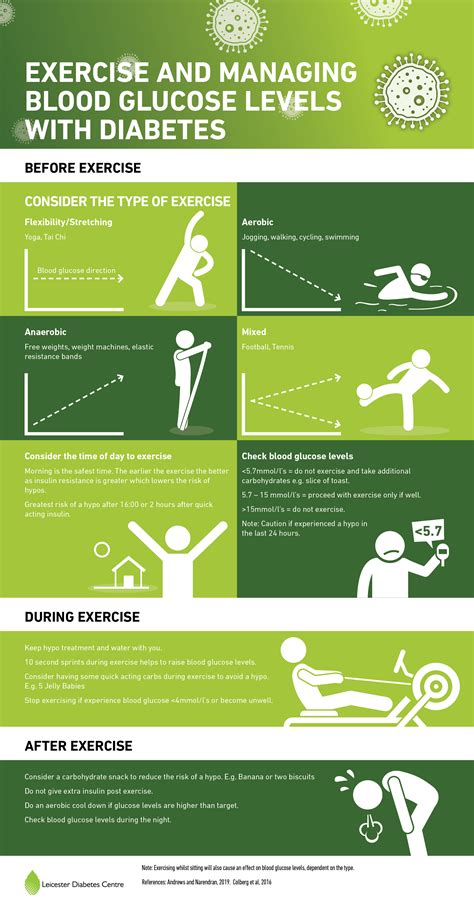Benefits of Exercise in Managing Diabetes
Managing Diabetes Through Exercise FAQ
Can exercise help manage diabetes?
Exercise is a key part of managing diabetes. Exercise can help you: Improve your blood sugar levels. Boost your overall fitness. Manage your weight. Lower your risk of heart disease and stroke. Improve your well-being. But diabetes and exercise pose unique challenges.
Can I exercise if I have type 1 diabetes?
Ask if it's OK to do the type of exercise you want to try, especially if you have type 1 diabetes. Exercise can cause blood sugar to become too low in people who take insulin. Blood sugar that's too low is called hypoglycemia. The risk also applies to people with type 2 diabetes who take insulin or other medicines linked with lower blood sugar.
How can exercise help a person with Type 2 diabetes?
help your mind as well as your body - exercise releases endorphins, which you could think of as happy hormones. Being active is proven to reduce stress levels and improve low mood. help people with type 2 diabetes improve their HbA1c. In some cases, this can help people with the condition go into remission.
How do you manage diabetes?
Exercise is another important part of managing diabetes. When you move and get active, your muscles use blood sugar for energy. Regular physical activity also helps your body use insulin better. These factors work together to lower your blood sugar level. The more strenuous your workout, the longer the effect lasts.
What exercise should I do if I have diabetes?
All adults should minimise the amount of time spent sitting for extended periods. As the guidelines above outline, there are two types of activity that are important in managing diabetes: aerobic exercise and strength training. Aerobic exercise (also sometimes known as ‘cardio’) is an exercise that increases your heart rate.
Is combination exercise a good strategy for managing diabetes?
Future research is necessary to quantify the additive and synergistic clinical benefits of combined exercise compared with aerobic or resistance training regimens alone; however, evidence suggests that combination exercise may be the optimal strategy for managing diabetes.
Managing Diabetes Through Exercise References
If you want to know more about Managing Diabetes Through Exercise, consider exploring links below:
What Is Managing Diabetes Through Exercise
- https://www.diabetes.org.uk/guide-to-diabetes/managing-your-diabetes/exercise
- https://www.nhs.uk/conditions/type-2-diabetes/food-and-keeping-active/
- https://www.ncbi.nlm.nih.gov/pmc/articles/PMC5846677/
- https://www.health.harvard.edu/staying-healthy/the-importance-of-exercise-when-you-have-diabetes
- https://www.mayoclinic.org/diseases-conditions/diabetes/in-depth/diabetes-and-exercise/art-20045697
- https://diabetesmyway.nhs.uk/resources/internal/exercise-and-physical-activity-healthy-living/
- https://diabetesjournals.org/care/article/39/11/2065/37249/Physical-Activity-Exercise-and-Diabetes-A-Position
- https://www.medicalnewstoday.com/articles/type-2-diabetes-physical-exercise
Managing Diabetes Through Exercise Information
Explore Related Topics
Interval Training Secrets: Are You In on the Trend?
Uncover the effectiveness of interval training in improving insulin sensitivity and overall health for individuals with diabetes.
